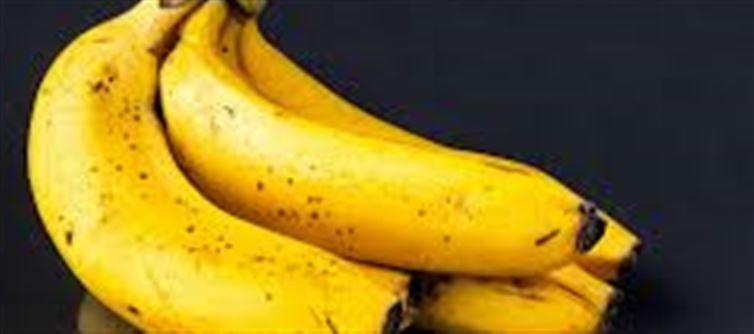
Bananas are one of the world’s most loved fruits — portable, delicious, and packed with nutrients. But if you’ve ever heard that eating a banana first thing in the morning is “too sugary” or “not good on an empty stomach,” you might be surprised to know the full story. Nutrition experts say the truth lies somewhere in between.
Let’s break down what really happens when you eat bananas on an empty stomach — the good, the not-so-good, and how to do it right.
🍌 The Good: A Quick Energy Boost
Bananas are nature’s instant energy bar. They’re rich in natural sugars (glucose, fructose, and sucrose) along with fiber, which makes them an ideal pick-me-up food. Eating one in the morning can:
· Raise energy levels quickly, thanks to its natural carbohydrates.
· Fuel your brain with a steady supply of glucose.
· Soothe your stomach if you wake up feeling queasy or low on energy.
Athletes often eat bananas before workouts for this very reason — they provide sustainable energy without heaviness.
💪 Packed With Essential Nutrients
A medium banana contains:
· Potassium: Helps balance electrolytes, regulate blood pressure, and prevent muscle cramps.
· Magnesium: aids in muscle and nerve function.
· Vitamin B6: Supports mood regulation and metabolism.
· Fiber: Promotes digestion and keeps you feeling full.
Starting your day with these nutrients gives your body a solid foundation for the hours ahead.
⚠️ The Not-So-Good: sugar Spike Potential
Bananas do have a moderate glycemic index (GI), meaning they can raise blood sugar fairly quickly when eaten alone. On an empty stomach, this can cause:
· A temporary spike in blood sugar, followed by a crash that leaves you tired or irritable.
· Increased acid production in sensitive individuals, since bananas are slightly acidic.
· For some, mild bloating or discomfort if the digestive system is sluggish in the morning.
So while a banana isn’t bad on an empty stomach, it’s best paired with something that balances its sugar and acidity.
🥣 How To Eat Bananas The Right Way in the Morning
Instead of eating a banana by itself, combine it with foods that provide protein, healthy fat, or complex carbs to slow sugar absorption:
· With peanut butter or almond butter — adds protein and healthy fats.
· In a smoothie — blend with milk, oats, chia seeds, or yogurt for a complete meal.
· With yogurt and nuts — balances sugar with probiotics and crunch.
· On whole-grain toast — turns it into a satisfying breakfast that keeps you full longer.
These combinations prevent blood sugar spikes and keep energy levels stable through the morning.
🧘 Who Should Be Cautious
If you have diabetes, acid reflux, or are prone to low blood sugar crashes, avoid eating bananas alone first thing. Pairing them with protein and fiber makes them much safer and more effective as part of a balanced meal.
🌞 Bottom Line: A banana Is Great — With a Little Balance
Eating a banana on an empty stomach won’t harm most people, but it’s not ideal if you’re looking for lasting energy or blood sugar balance.
✅ Good: Instant energy, nutrient-rich, gentle on digestion.
⚠️ Caution: Possible sugar spike or acidity if eaten solo.
💡 Best Way: Pair with protein or fiber for a balanced start.
So next time you reach for a banana first thing in the morning, just remember — it’s not about what you eat, but how you eat it.
Disclaimer:
The views and opinions expressed in this article are those of the author and do not necessarily reflect the official policy or position of any agency, organization, employer, or company. All information provided is for general informational purposes only. While every effort has been made to ensure accuracy, we make no representations or warranties of any kind, express or implied, about the completeness, reliability, or suitability of the information contained herein. Readers are advised to verify facts and seek professional advice where necessary. Any reliance placed on such information is strictly at the reader’s own risk.




 click and follow Indiaherald WhatsApp channel
click and follow Indiaherald WhatsApp channel